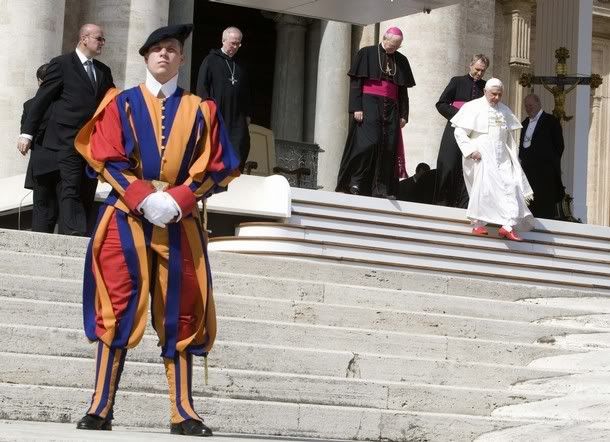 The Pope had his Wednesday Audinece today At At Peter's!! There are some wonderful pics that are on this page of the Italian Photo Benedict section from today(Toward the bottom). These are just a few of them that i have posted.
The Pope had his Wednesday Audinece today At At Peter's!! There are some wonderful pics that are on this page of the Italian Photo Benedict section from today(Toward the bottom). These are just a few of them that i have posted.
Thanks again to the Ratzinger Forum that did the quick English translation.
Dear brothers and sisters,
I would like to speak today on the relationship between St. Paul and the Apostles who had preceded him in following Jesus. These relations were always marked with profound respect and that frankness which in Paul derived from the defense of Gospel truth.
Even if he was practically a contemporary of Jesus of Nazareth, he never had the opportunity to meet him during Jesus's public life. Thus, after the lightning bolt on the road to Damascus, he felt the need to consult the first disciples of the Master, who were chosen by him to bring the Gospel to the very ends of the world. In the Letter to the Galatians, Paul writes an important account of the contacts he had with some of the Twelve: above all with Peter who had been chosen to be Kephas, the Aramaic word which means 'rock', on which the Church was being built (cfr Gal 1,18); with James, 'the brother of the Lord' (cfr Gal, 1,19); and with John (cfr Gal 2,9).
Paul does not hesitate to acknowledge them as the 'pillars' of the Church. Particularly significant is his meeting with Cephas (Peter) in which took place in Jerusalem: Paul stayed 15 days with him to 'consult him' (cfr Gal 1,19), that is, to be informed about the early life of the Resurrected One, who had 'seized' him on the road to Damascus and was changing his existence in a radical way. From persecutor of the Church of God, he had become an evangelizer of that faith in the Crucified Messiah and Son of God whom he had sought to destroy in the past (cfr Gal 1,23).
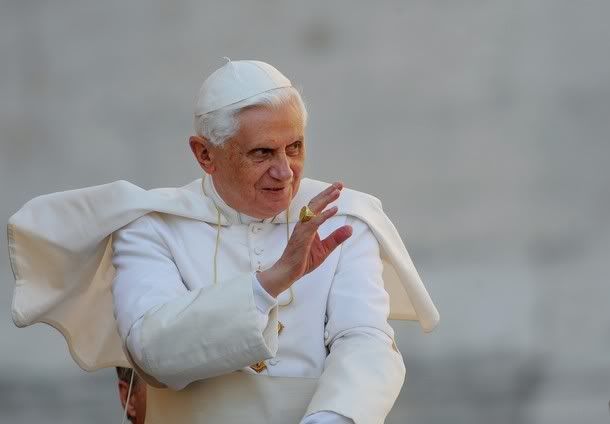 What kind of information did Paul have about Jesus Christ in the three years that followed the encounter in Damascus?
What kind of information did Paul have about Jesus Christ in the three years that followed the encounter in Damascus?
In the first Letter to the Corinthians, we can recognize two items which Paul learned in Jerusalem and which had already been formulated as central elements of the Christian tradition, its constitutive tradition. He transmits these literally, as he had received them , with a very solemn formula: "I transmit to you what I have received".
Therefore, he insists on faithfulness to whatever he himself had received and which he faithfully hands down to new Christians. They are constitutive elements about the Eucharist and the Resurrection - both of which had already been formulated in the (decade of the) 30s, at the time of the death, burial in the heart of the earth, and the resurrection of Jesus (cfr 1 Cor 15,3-4). Let us take them one by one.
The words of Jesus at the Last Supper (cfr 1 Cor 11,23-25) are for Paul the real center of the life of the Church: the Church is built starting from this center, to become what it is. Beyond this Eucharistic center,in which the Church is always born anew - in all of St. Paul's theology and in all his thought - these words had a remarkable impact on Paul's personal relationship with Jesus. On the one hand, they attest that the Eucharist illuminates the curse of the Cross, making it a blessing (Gal 3,13-14); and on the other, they explain the very significance of Jesus's death and resurrection.
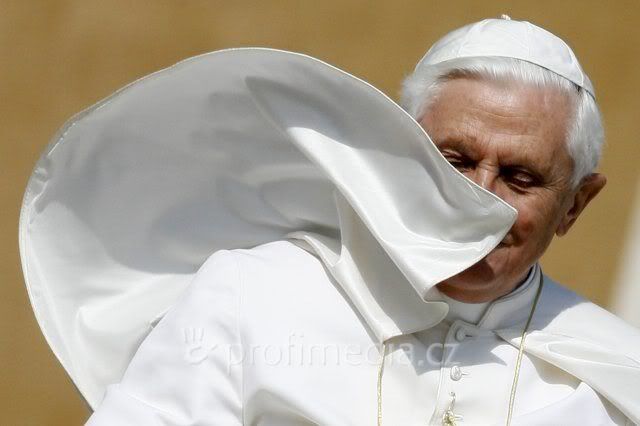 In his Letters, the words 'for you' in the institution of the Eucharist becomes 'for me' (Gal 2,20), personalizing it, knowing that in that 'you', he himself was acknowledged and loved by Jesus, as well as 'for all' (2 Cor 5,14): the 'for you' [that Jesus said] becomes 'for me' and 'for the Church' (Eph 5,25), and even 'for all', in the expiatory sacrifice of the Cross (cfr Rom 3,25).
In his Letters, the words 'for you' in the institution of the Eucharist becomes 'for me' (Gal 2,20), personalizing it, knowing that in that 'you', he himself was acknowledged and loved by Jesus, as well as 'for all' (2 Cor 5,14): the 'for you' [that Jesus said] becomes 'for me' and 'for the Church' (Eph 5,25), and even 'for all', in the expiatory sacrifice of the Cross (cfr Rom 3,25).
From and in the Eucharist, the Church builds itself and knows itself to be the "Body of Christ' (1 Cor 12,27), nourished everyday by the power of the Spirit of Christ resurrected. The other text, on the Resurrection, transmits to us again the same formula of faithfulness. St. Paul writes: "I have transmitted to you, therefore, above all that which even I received: that is, that Christ died for our sins according to the Scriptures, and that he appeared to Cephas and then to the Twelve" (1 Cor 15,3-5).
Even in this tradition transmitted to Paul, the words 'for our sins' returns, which places the accent of the offering that Jesus made of himself to the Father to liberate us from sin and death. From Christ's giving himself, Paul would derive the most engaging and fascinating expressions of our relationship with Christ: - "For our sake he made him to be sin who did not know sin, so that we might become the righteousness of God in him" (2 Cor 5,21). - "For you know the gracious act of our Lord Jesus Christ, that for your sake he became poor although he was rich, so that by his poverty you might become rich" (2 Cor 8,9).
It is worthwhile recalling the comment of Martin Luther when he was still an Augustinian monk, to these paradoxical statements by Paul: "this is the grand mystery of divine grace towards sinners: that with a miraculous exchange our sins are no longer ours, but Christ's, and Christ's justice is no longer Christ's but ours" (Comments on the Psalms, 1513-1515). And that is how we are saved.
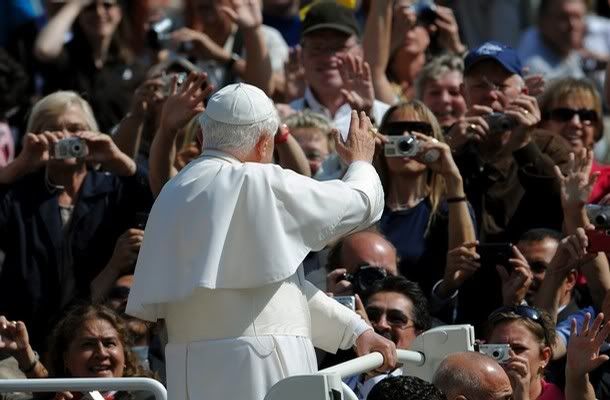
In the original kerygma (announcement), transmitted from mouth to mouth, one must note the use of the very 'has resurrected' instead of 'was resurrected' which would have been more logical to use, in continuity with "he died...and was buried".
The verbal form 'has resurrected" was chosen to underline the fact that the resurrection of Christ cuts into the present existence of the believer. We can translate it to mean: "He has resurrected and continues to live" in the Eucharist and in the Church. Thus, all of Scriptures give testimony of the death and resurrection of Christ, because - as Ugo di San Vittore wrote - "all of divine Scripture constitutes one book, and this one book is Christ, because all of Scripture speaks of Christ and finds in Christ its fulfillment" De arca Noe, 2,8).
If St. Ambrose of Milan could say that "in Scripture, we read Christ". it is because the early Church had re-read all the Scriptures of Israel starting from Christ and returning to him. The rhythm of the apparitions of the Resurrected Lord to Peter, to the Twelve, to more than 500 brothers, and to James closes with the personal apparition received by Paul on the road to Damascus: "Last of all, as to one born abnormally, he appeared to me" (1 Cor 15,8).
Because he had persecuted the Church of God, he expresses in this confession his unworthiness to be considered an apostle, at the same level as those who had preceded him: but the grace of God in him was not in vain ['his grace to me has not been ineffective'] (1 Cor 15,10).
That is why his affirmation that he was overwhelmed by God's grace brings Paul into the community of the first witnesses of Christ's resurrection: "Whether it be I or they, so we preach and so you believed" (1 Cor 15,11). The identity [sameness] and uniqueness of the Gospel announcement is important: they as well as I preach the same faith, the same Gospel of Jesus Christ who died and resurrected and who gives himself to us in the Most Holy Eucharist.
The importance that Paul gives to the living Tradition of the Church, that he transmits to her communities, shows how wrong is the view that attributes to Paul the 'invention' of Christianity. Before evangelizing Jesus Christ, his Lord, he met him on the road to Damascus, and he met him in the Church, observing him in the life of the Twelve and those who had followed him through the roads of Galilee.
In the next catecheses, we will have the opportunity to look deeper into the contributions that Paul made to the early Church. But the mission he received from the Resurrected Lord regarding the evangelization of the Gentiles needed to be confirmed and guaranteed by those who gave him and Barnabas their right hand, as a sign of approval for their apostolate and their evangelization, and of welcome into the one communion of the Church of Christ (cfr Gal 2,9).
We can understand then that the statement "Even if we once knew Christ according to the flesh" (2 Cor 5,16) does not mean that his earthly life had little importance for our maturation in the faith. but rather that from the moment of his Resurrection, our way of relating to him changes. he is, at the same time, the Son of God, "descended from David according to the flesh, but established as Son of God in power according to the spirit of holiness through resurrection from the dead", as Paul recalls at the start of the Letter to the Romans (1,3-4).
The more we seek to retrace the steps of Jesus of Nazareth through the roads of Galilee, the more we can understand that he took charge of our humanity, sharing it in everything except sin. Our faith was not born from a myth nor from an idea, but from the encounter with the Resurrected Lord in the life of the Church.
Here are the words the Pope said in English:
In today’s catechesis we turn again to the life of Saint Paul and consider his relationship with the Twelve Apostles. In his letter to the Galatians, Paul speaks of his visits to Jerusalem where he consulted Peter, James and John, reputed to be the "pillars" of the Church. Paul’s mission to the Gentiles needed to be confirmed and guaranteed by those who had been disciples of Jesus during his earthly life, and they offered to him and to Barnabas the right hand of fellowship.
Paul passed on the living tradition that he had received: the words of Jesus at the Last Supper, his death and resurrection, and his appearances to Peter and to the Twelve. Paul emphasizes that Jesus died "for our sins", he offered himself to the Father in order to deliver us from sin and death. And now that Jesus has risen from the dead, he is living in his Church and in the Eucharist, where we continue to encounter him.
Just as Paul’s teaching is rooted in his experience on the road to Damascus, and in his knowledge of Christ acquired through the Church, so too our faith is grounded, not on myths or pious legends, but on the words and deeds of Jesus of Nazareth, and on our encounter with the risen Lord, present in the life of his Church.
I offer a warm welcome to all the English-speaking pilgrims and visitors here today, including the choir from New Zealand and the groups from Britain and Ireland, Scandinavia, Africa, Australia and the Far East. I greet in particular the new students from the Venerable English College and the priests from Ireland who are taking part in a renewal course. May your pilgrimage renew your faith in Christ present in his Church, after the example of the Apostle Saint Paul. May God bless you all!


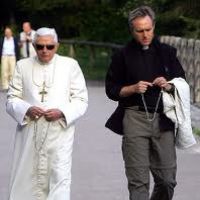

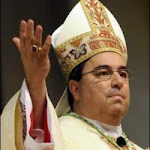



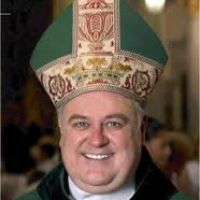
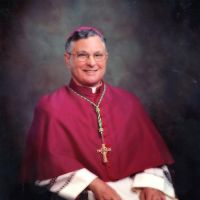
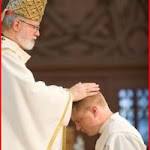

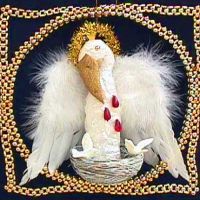
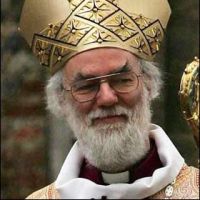

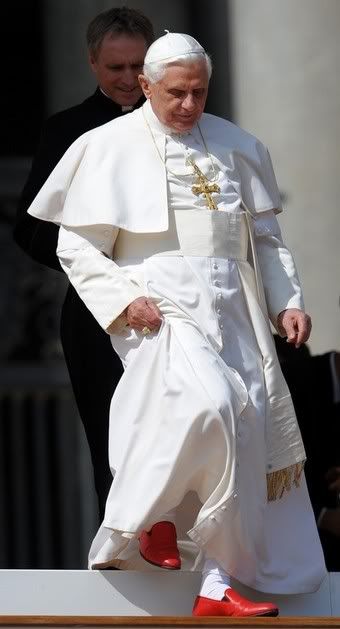
No comments:
Post a Comment